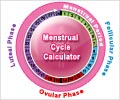- Menstrual cups are a practical and eco-friendly alternative to tampons and pads, reducing waste and saving money in the long run
- Menstrual cups offer advantages such as increased capacity, leak-free protection, and odor control compared to traditional menstrual products
- Menstrual cups are convenient to use and can be a comfortable and skin-friendly option for managing your period
Menstrual Cups: Empowering Women, One Flow at a Time
Menstrual cups have been around since at least 1932. They are bell-shaped products, similar to the majority of cups available today, that can be inserted into the vaginal canal to collect menstrual blood.Modern menstrual cups are made from medical-grade materials like silicone, rubber, latex, and elastomer. These materials are soft, malleable, sterile, and easy to clean. Menstrual cups are gaining popularity due to their reusability and longevity. They are strong and can last for approximately ten years (1✔ ✔Trusted Source
Preclinical, clinical, and over-the-counter postmarketing experience with a new vaginal cup: menstrual collection
Go to source).
Green and Clean: Embrace the Menstrual Cup Movement
One of the advantages of menstrual cups is their eco-friendliness. They significantly reduce the amount of waste generated from disposable sanitary pads.Why should you consider using a menstrual cup?
Despite the widespread use of tampons and pads, there are several disadvantages associated with these products. They can hinder women, both young and old, from attending school or work.Additionally, the use of poor-quality products increases the risk of urinary tract infections. These factors highlight the importance of using an affordable and eco-friendly alternative like menstrual cups.
Menstrual cups are flexible products designed to collect menstrual blood during your period. Unlike tampons or pads, cups do not absorb the flow. If you have a latex allergy, it is advisable to choose a silicone cup to avoid any potential gynecological issues.
You can use a menstrual cup throughout your cycle, but you may need to change it more frequently on heavy flow days to prevent leakage. Simply remove the cup, rinse it, and reinsert it every 12 hours or whenever leakage occurs (2✔ ✔Trusted Source
Menstrual cup use, leakage, acceptability, safety, and availability: a systematic review and meta-analysis
Go to source).
Menstrual Cups vs. Disposable Menstrual Hygiene Products
Here are some reasons to consider using menstrual cups instead of sanitary napkins and tampons:No Embarrassing Odor:
Menstrual cups do not expose the fluid to the air as pads and tampons do, so there's no need to worry about odor escaping at inconvenient times. The presence of positive bacteria and the vaginal pH remain stable. Tampons absorb both the blood and vaginal fluid, which can disrupt the delicate bacterial balance and pH of the vagina.Durability:
Trying out new menstrual hygiene methods can be daunting, but once you give them a chance, you'll find numerous reasons to continue using them. Menstrual cups are reusable, long-lasting, and significantly less expensive than sanitary napkins.Increased Capacity:
Menstrual cups can hold more liquid compared to tampons and pads. They have twice the capacity, which is especially helpful during heavy flow days.Leak-Free:
Using menstrual cups provides peace of mind with minimal chances of leakage. You won't have to wake up suddenly during sleep to search for pads or tampons.Skin-Friendly:
Sanitary napkins can cause rashes, while tampons may contain synthetic fragrances and perfumes that can lead to skin allergies and irritation. Menstrual cups are free from such issues.Reduced Waste and Cost Savings:
Some cups are designed to last for years, offering significant savings compared to tampons and pads. With fewer cups being disposed of, there is less waste in landfills and fewer trees being cut down compared to paper-based alternatives. If you opt for a reusable cup, make sure to read the label carefully before purchasing it to ensure it is indeed reusable. This is an additional way to reduce your monthly expenses.Convenient to Use:
If you have experience using tampons, especially those without applicators, inserting a menstrual cup should be easy to learn. It's even easier if you've used a NuvaRing as a form of birth control. Simply fold the cup to resemble a tampon, insert it toward the back of the vagina, and let it unfold itself. When inserted correctly, you won't feel it at all.However, you won't know if a menstrual cup is the right choice for you until you try it. Cups come in different sizes and shapes, so if one doesn't fit, the next one might. Menstrual cups are available in drug stores and online.
While it is still unclear whether menstrual cups are equally safe, less safe, or safer than traditional disposable tampons and pads, researchers recommend including them in menstrual hygiene campaigns, as they believe cups are at least as reliable and safe as other available products.
References:
- Preclinical, clinical, and over-the-counter postmarketing experience with a new vaginal cup: menstrual collection - (https://pubmed.ncbi.nlm.nih.gov/21194348/)
- Menstrual cup use, leakage, acceptability, safety, and availability: a systematic review and meta-analysis - (https://pubmed.ncbi.nlm.nih.gov/31324419/)
Source-Medindia










